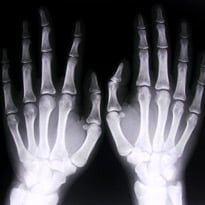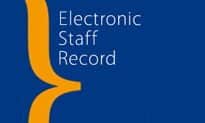ESR launches dose reduction campaign
- 23 October 2013

The European Society of Radiology has set out plans to reduce inappropriate exposure to radiation that include the greater use of computerised dose monitoring and dose repositories.
A statement on the Insights into Imaging website sets out the plan of action for improving protection for both patients and staff against excessive doses of radiation.
It says there has been “a trend of an increasing inappropriate medical exposure to ionising radiation” and that there are “vast variations in patient doses for the same radiological examination.”
In response, it wants to see what it describes as a GPS approach to the problem; where GPS stands for Globalisation, Personalisation and Safety.
A global approach involves all stakeholders and is necessary, it says, because “the different components of radiation protection are often interrelated and cannot be considered in isolation and independently.”
Personalised, patient-centric medicine requires an understanding of the different requirements in different settings (such as hospital and general practice) and a consideration of the different risks for “children, aged persons, persons with chronic and oncological disease, and those with genetic variations increasing radiosensitivity.”
Of the third element, safety, the ESR statement says: “Radiation protection is an important pillar of the safety culture in radiology.”
It adds that “technology holds the key to developments in patient and staff radiation safety and thus developing and utilising dose management tools has the greatest potential.”
The ESR “wishes to promote establishment of dose repositories to support dose management and clinical audit to document improvement.”
The statement proposes ten actions and mechanisms to improve radiation protection. Among these are a “high priority” clinical decision support project to provide a European model of IT tools for implementing personalised medicine and patient-centric appropriateness.
Other ideas include: protection training with certification; a clinical audit service to be carried out by the ESR; inclusion of a radiation protection column in the ESR newsletter; and a radiation protection campaign to be launched at the European Congress of Radiology in Vienna in March 2014.
Professor Jan Casselman, chairman of the radiological department at St John’s Hospital in Bruges, said that the need to monitor dosage needed to be taken seriously, given the increasing use of CT scanners in particular.
“We have to think of a lifetime dose,” he said. “No longer is it one visit to a hospital, it’s an accumulation, and the chance of negative effects is that the total accumulated dose one day gets too high.” Doctors and radiologists have an “ethical duty,” he said, not to carry out unnecessary x-rays.
In Belgium, government regulations require hospitals to provide information about the amount of dosage they’re using.
St John’s hospital has been using an automated dose monitoring system from GE Healthcare for several months, and Casselman said it has enabled the hospital to keep average dosage down and to identify outliers.
Dose monitoring will be one of the subjects debated at the RCR Imaging Informatics group meeting at EHI Live 2013. Public Health England will be outlining its work on data collection, and Ian Judd from Sectra will talk about the challenges – and solutions – ahead.
EHI Live 2013 is more than a meeting, more than an exhibition. For anyone involved in the use of information in healthcare it’s a golden opportunity to update knowledge, get answers to questions, meet the experts and think about the future. This year’s conference is free for all visitors to attend.



